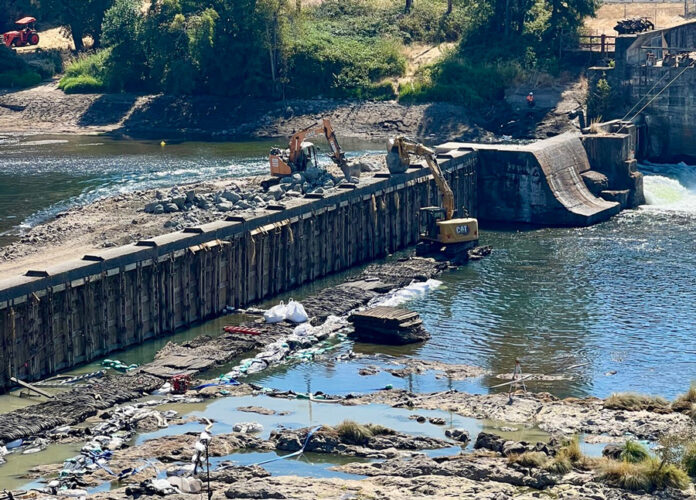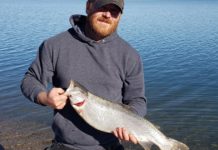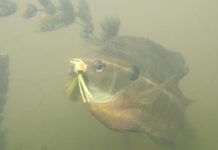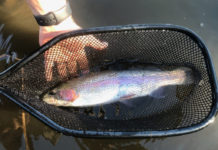Welcome to the latest installment of the Wednesday Wake-Up Call, a roundup of the most pressing conservation issues important to anglers. Working with our friends at Trout Unlimited, Backcountry Hunters & Anglers, the Theodore Roosevelt Conservation Partnership, The Everglades Foundation, Captains for Clean Water, VoteWater.org, Bonefish & Tarpon Trust, and Conservation Hawks (among others), we’ll make sure you’ve got the information you need to understand the issues and form solid opinions.
1. TU, BLM announce five-year, $8.9 million agreement for Western watershed restoration
Photo by Phil Monahan
The Bureau of Land Management (BLM) and Trout Unlimited (TU) today announced a five-year, $8.9 million agreement to reconnect and restore arid Western watersheds, including the Colorado River, California-Great Basin, and Columbia Pacific Northwest river systems. TU will reconnect watersheds and habitat for wild and native trout across BLM lands in the West, making these regions more resilient to drought.
“Climate change and severe drought are having devastating impacts on our water resources in the arid West, affecting both people and fish,” said Chris Wood, Trout Unlimited president and CEO. “By reconnecting and restoring aquatic habitat, we can help wild and native trout and salmon survive and thrive in the face of climate change. We appreciate the strong partnership we have with the Bureau of Land Management to conserve our public land water resources for current and future generations.”
Click here for the full story on tu.org
2. Take Action to Protect the North Umpqua

On August 7, 2023, Winchester Water Control District (WWCD) started repairing the derelict Winchester Dam on Oregon’s North Umpqua River, famous for its steelhead and salmon runs. The work required a shutdown of fish passage for three weeks, and the repairs were supposed to be “to the minimum extent necessary to eliminate known and reasonably anticipated dam safety deficiencies at the dam.” River advocates had warned agencies that if they granted WWCD’s harmful three-week blockage, a request for an even more harmful time extension was inevitable, because the proposed repair plan was wildly unrealistic. That’s exactly what happened: the three-week blockage was extended to September 1.
The devastating results of repairs and blockages have been well documented, and there’s more planned. WWCD’s 2018 repair of the south abutment failed within months, and came at the cost of a major pollution spill and fish kill. River flow through this hole in the main migration corridor will continue to pull in young fish moving downstream, and falsely attract salmon and steelhead traveling upriver.
WWCD must be held accountable for the damage it has allowed, and the only solution is the removal of Winchester Dam to end its ongoing harm to the river and its fish.
Click here to make your voice heard on Steamboaters.org
Click here for an easy-to-fill in form, via NativeFishSociety.org
3. Restoring the Mangroves Devastated by Hurricane Dorian
Three years ago, Hurricane Dorian slammed in to Abaco and Grand Bahama Islands in the Bahamas, destroying mangrove forests that provide vital fish habitat and protect the islands from the effects of climate change. While a host of organizations, including Bonefish & Tarpon Trust, have been involved in working to restore the damage, a quirk of Bahamian law has made things difficult.
The new law seeks to prevent the country’s natural resources from being exploited by foreign interests under the guise of research. Ironically, the legislation has made it more challenging for international organizations with local ties and even Bahamian environmental groups with foreign partners to execute environmental research and restoration work in the country.
Finally, the tide seems to have turned and work is ongoing in a variety of locations. BT&T says it has already planted over 20,000 mangroves, although this is just a start of what will surely be a decade-long effort.
Click here to learn more in the Nassau Guardian
Credit: Source link






























